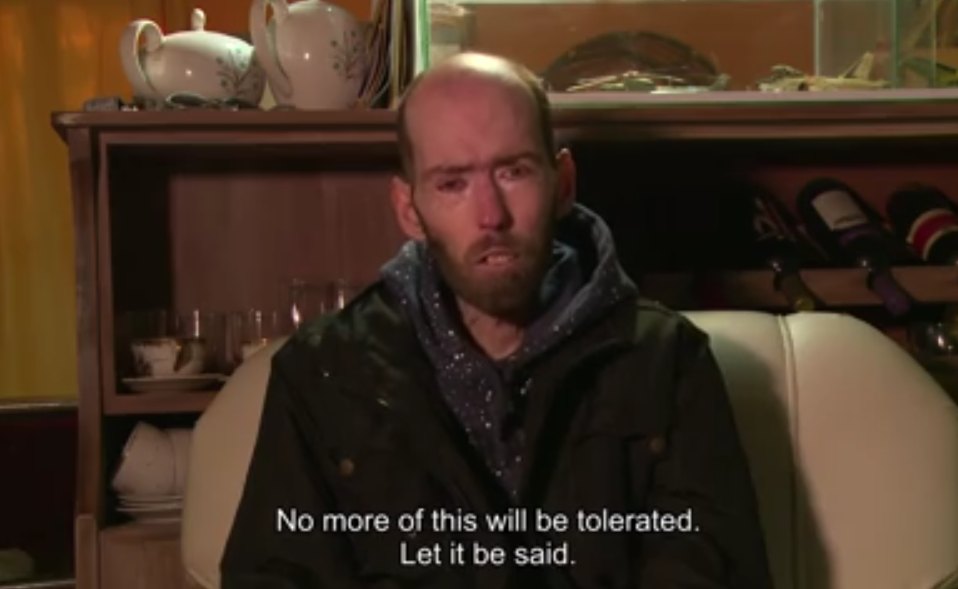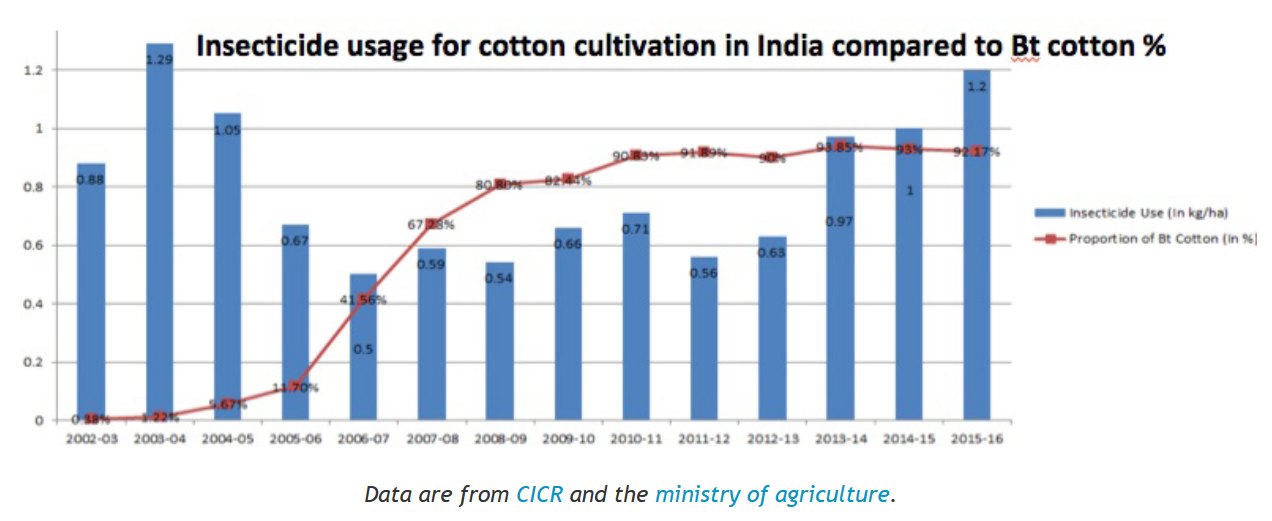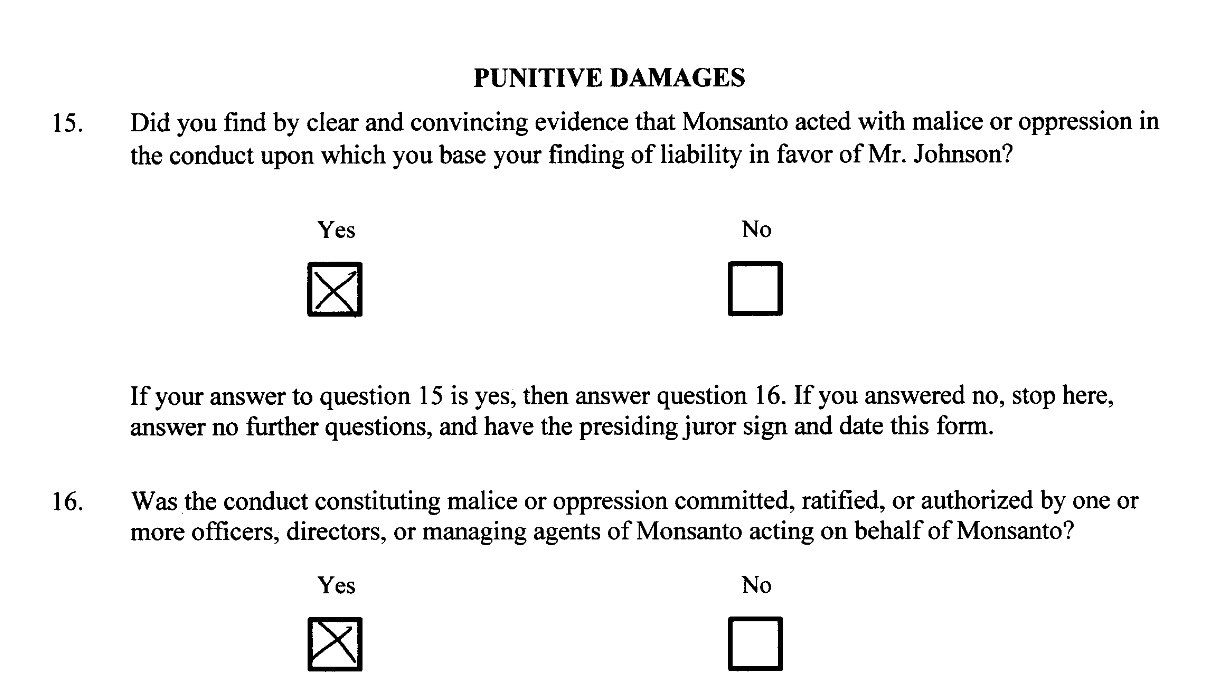In this newsletter: news on Roundup, dicamba, Bt cotton, Bayer's strategy and a tribute to Fabián Tomasi.
In August, Monsanto was condemned to pay $289m to DeWayne Johnson, an American gardener who routinely used Roundup at work and is now terminally ill from a rare form of cancer. You probably heard the news since many media sources covered that case (at least in Europe)! Find out more about it in this newsletter, together with other information related to Bayer Monsanto and to the fight for a better food and agricultural system.
Glyphosate court victory: DeWayne Johnson ruling
You have probably heard the great news. A US court sentenced Monsanto to pay $289m to a man who suffers from non-Hodgkin lymphoma, a rare condition that can be linked to glyphosate-containing Roundup. Victims of this terrible disease and their lawyer testified in the Monsanto Tribunal. Monsanto, now owned by Bayer, has spent decades working hard on concealing scientific evidence to protect its business. The company’s internal documents known as the ‘Monsanto Papers’ played a big role in convincing the jury that Monsanto’s officials acted with ‘malice or oppression’ in failing to adequately warn of the risks.
Bayer Monsanto has appealed, of course, but this cannot hide the huge crisis the company is in. Bayer shares dropped almost 20%, wiping out 11 billion in stock value. The value won back some ground but dropped again another 14% early September. And the worst is yet to come.
The Johnson case is one in 8,000 cases on glyphosate related Non-Hodgkin lymphoma. Next similar court case is planned in February in the US and you can find more info and links on Justice Pesticides. Many more glyphosate claims are yet to come, like the 40,000 kidney failure cases in Sri Lanka and the innumerable illnesses and birth defects in the killing soy fields in Latin America. But glyphosate is not the only problem for Bayer Monsanto.
Their new herbicide-resistant GMOs rely on the herbicide dicamba, that poses serious problems as you can read below. The same accounts for the failing Bt technology, another cash cow for cotton and corn seeds until now. In addition, PCB and Agent Orange court cases are haunting Monsanto and now Bayer. Their answer? Trying to lure the public into the story that their technology is the way forward to sustainably feed 10 billion people on this planet by 2050. Don’t let them succeed in this lie. Help us tell the truth and counteract their misleading information. Support our work now.
In loving memory of Fabián Tomasi
This newsletter is a tribute to Fabián Tomasi who passed away on September 7, at the age of 53. Over time, this Argentinian farm worker became an anti-pesticide activist, even though he never described himself as an environmentalist. Fabián’s job was to fill the tanks of fumigation planes with many chemical substances such as glyphosate, 2-4D, gramoxone… Diagnosed with a severe toxic polyneuropathy, Fabián was in constant pain, and he used his body as a symbol for the struggle against agribusiness greed.

Supporter of the Monsanto Tribunal, he frequently spoke in schools and community centers in Argentina. We will continue to fight against Monsanto and other companies in his memory.
Brazil: a court tries to suspend pesticides authorizations
In Brazil, on August 3, a federal judge in Brasilia ruled the immediate prohibition of new licenses for products based on abamectin, glyphosate and tiram. Indeed, the precautionary principle reverses the burden of proof on the pesticides manufacturers and ANVISA, the national sanitary surveillance agency. It requires them to prove that these chemical substances are not safe. Brazil’s Minister of agriculture (and agribusiness proponent) Blairo Maggi was quick to react: to him, a ban would be a disaster for agriculture and there is no alternative to these chemicals.
Beginning of September, the court reversed its decision after it was contested by ANVISA’s Advocate General. Read more information on this case on Justice Pesticides.
Dicamba crisis
Weeds are growing resistant to glyphosate. This is why Monsanto and BASF developed genetically modified seeds that can be used with another weedkiller, dicamba. However, dicamba can vaporize and drift onto nearby fields. So far, 181 growers in at least eight US states have sued Monsanto over the Dicamba and Roundup Ready Xtend Crop System. The farmers are demanding compensation for trees and crops damaged by dicamba spraying. A class-action status will represent thousands of claims.
Environmental groups argued in federal appeals court in August that the US Environmental Protection Agency failed to analyze the risks and should reverse the approval of XtendiMax. Judge William Fletcher questioned whether the EPA indeed relied on sufficient studies to make its decision. ‘After all, you guys turned out to be wrong,’ Fletcher said, referring to a university study revealing that 3 million acres, or 4 percent of the US soybean crop, was destroyed by dicamba drift during the 2017 planting season. Read more.
Bt Cotton failure
Not only the Bayer-Monsanto's pesticide, glyphosate and dicamba products face a crisis, the whole range of herbicide and pesticide-resistant GMO is. Once praised as a miracle technique, the Bt products – plants with the genes of a bacteria that produce insecticide themselves – are in trouble. In India, most of the cotton is Bt. Now crop yields are declining, insects have become resistant to Bt and fertilizer and pesticide use have massively increased since the Bt technology introduction.
The unique selling point of GM Bt cotton is that it has a built-in insecticide. This is claimed to reduce the need for farmers to spray chemical insecticides, but the data show that while GM Bt cotton did initially reduce the need for insecticide spraying, this trend did not last. Now farmers are spraying as much insecticide as they did before the expensive Bt cotton became widely grown. Besides, the Bt toxin produced by the plants is harmful for other insects.

This is bad news for Bayer Monsanto, the USAID and Mahyco-Monsanto project in Bangladesh where they try to open up the vegetable seed market and introduce GMO in food crops with Bt Brinjal (eggplant). Policy analyst and farmers' representative from Bangladesh Farida Akhter already warned at the Monsanto Tribunal about the dangers to health, biodiversity and environment. The Bt cotton failure only reinforces her arguments. Read more.
Vlogging for influence
‘Today we hosted an international group of food bloggers and vloggers on our Forward Farm in Abbenes (NL). Dutch farmers tell about sustainable farming.’ Sounds like a project by an agroecology advocacy group, doesn’t it? Nope, it’s not. It is a Bayer project and a Bayer tweet. So what could that bright future look like? See below.
Will Bayer ditch glyphosate?
Not exactly. Mid-September Bayer presented a statement in an international press conference in Monheim, Germany. They are preparing a broad coalition in the international agricultural community to keep glyphosate available. ‘Glyphosate is efficient, completely safe and has a low environmental impact’ says Jesus Madrazo, sustainability manager at Bayer CropScience. ‘This product is too important for sustainable and innovative crop systems throughout the world, so it can’t just disappear. Besides, there is no acceptable alternative available in the near future.’
Bayer is therefore planning to present a lot of information to the public on glyphosate. Madrazo: ‘We want to present the right facts and are preparing dialogues like this to do so. We will use social media to reach out to a wide audience. On top of that we ask governments to base the approval of glyphosate on scientific information and not to play a political game.’ In the meeting, Madrazo was supported by his colleague Bill Reeves, who used to do the approval procedures in the US for Bayer and before Monsanto. British National Farmers' Union representative Guy Smith supported the Bayer story by stating that glyphosate is indispensable. So please do not worry, Bayer will save the world and feed the 10 billion. And please understand: ‘In order to feed the world we had to poison it.’
Black book on Syngenta, Monsanto’s Swiss twin
Syngenta is the first pesticides manufacturer in the world: it produces, among other substances, the sadly famous atrazine and paraquat. In ‘March Against Syngenta, Revealing Monsanto’s twin from Switzerland’, the Swiss NGO Multiwatch investigates on Syngenta’s business and lists all the scandals the company is involved in. Corruption, pollution, political violence, you name it… This book is now available in English an e-book (and the PDF is free!) , as well as in French, German and Spanish. It is dedicated to Keno, a landless workers' movement leader assassinated in 2007 by a private security company hired by Syngenta.

Support our work
The Monsanto Tribunal has been very helpful to show the world the suffering and damage caused by Monsanto. We have highlighted the legal opinion as widely as possible and will continue to counteract biotech propaganda and hold Bayer Monsanto liable for its crimes against nature and humanity. Please support our work. Thank you!


